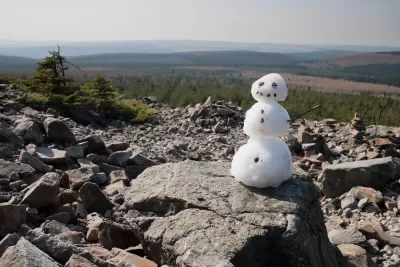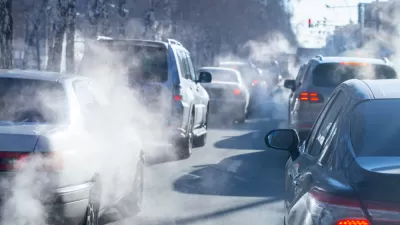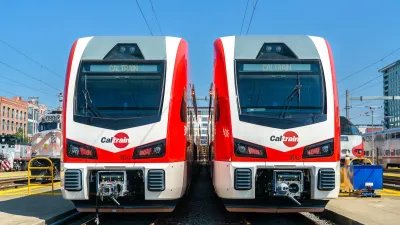Scientists are increasingly concerned that climate tipping points might "cascade" into multiple heating effects that does irrevocable damage to the planet.

"New research warns that the earth may be approaching key tipping points, including the runaway loss of ice sheets, that could fundamentally disrupt the global climate system. A growing concern is a change in ocean circulation, which could alter climate patterns in a profound way," according to an article by Fred Pearce.
A recent study, published in Nature, suggests that changes to ocean circulation could produce a cascade of effects, each triggering another, "creating an irreversible shift to a hotter world," according to Pearce's explanation.
Pearce is compelled by that recent research, but there's a history of similar findings to share. Here's how Pearce summarizes the three tipping points that worry researchers:
The potential tipping points come in three forms: runaway loss of ice sheets that accelerate sea level rise; forests and other natural carbon stores such as permafrost releasing those stores into the atmosphere as carbon dioxide (CO2), accelerating warming; and the disabling of the ocean circulation system.
While researchers used to think of each of these tipping points as independent of each other, warning such as this new research suggest the cascade relationship between each.
FULL STORY: As Climate Change Worsens, A Cascade of Tipping Points Looms

Trump Administration Could Effectively End Housing Voucher Program
Federal officials are eyeing major cuts to the Section 8 program that helps millions of low-income households pay rent.

Planetizen Federal Action Tracker
A weekly monitor of how Trump’s orders and actions are impacting planners and planning in America.

Ken Jennings Launches Transit Web Series
The Jeopardy champ wants you to ride public transit.

Washington Legislature Passes Rent Increase Cap
A bill that caps rent increases at 7 percent plus inflation is headed to the governor’s desk.

From Planning to Action: How LA County Is Rethinking Climate Resilience
Chief Sustainability Officer Rita Kampalath outlines the County’s shift from planning to implementation in its climate resilience efforts, emphasizing cross-departmental coordination, updated recovery strategies, and the need for flexible funding.

New Mexico Aging Department Commits to Helping Seniors Age ‘In Place’ and ‘Autonomously’ in New Draft Plan
As New Mexico’s population of seniors continues to grow, the state’s aging department is proposing expanded initiatives to help seniors maintain their autonomy while also supporting family caregivers.
Urban Design for Planners 1: Software Tools
This six-course series explores essential urban design concepts using open source software and equips planners with the tools they need to participate fully in the urban design process.
Planning for Universal Design
Learn the tools for implementing Universal Design in planning regulations.
Heyer Gruel & Associates PA
Ada County Highway District
Institute for Housing and Urban Development Studies (IHS)
City of Grandview
Harvard GSD Executive Education
Toledo-Lucas County Plan Commissions
Salt Lake City
NYU Wagner Graduate School of Public Service





























